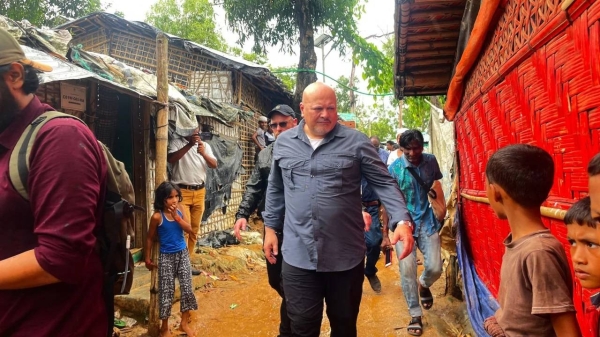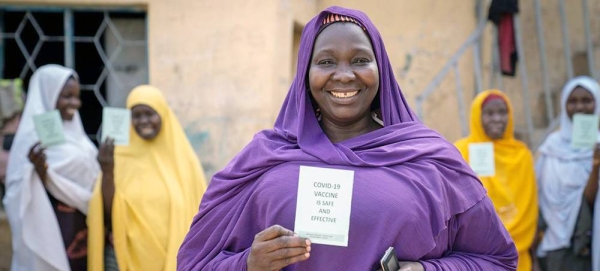
Many Malaysians believe that the Daesh returnees will pose a threat to national security and should not be allowed to return
Malaysia claims that its deradicalization program is one of the most successful in the world — a model for the fight against terrorism and religious extremism
KUALA LUMPUR: The Malaysian government has still to decide whether a reported 40 Daesh members of Malaysian origin — including women and children — should be allowed to return to their homeland from Syria. But the Inspector-General of Police of Malaysia Abdul Hamid Bador told Arab News on Thursday, “They are Malaysians and the must be allowed to come back.”
Bador stressed that any returning Daesh members would be charged under Malaysia’s Security Offenses Act and would have to undergo the country’s deradicalization program. But while many Malaysians are opposed to allowing the hard-line militants to return home, Bador said, “As a sovereign nation, Malaysia must fulfill her international obligations. We will undertake the responsibility of subjecting all of them to our rehabilitation programs.”
At a press conference on Saturday, Malaysia’s Special Branch Anti-Terrorist Division principal assistant director Ayob Khan Mydin Pitchay said that Daesh returnees would undergo rehabilitation, which would include counseling for the children.
Many Malaysians believe that the Daesh returnees will pose a threat to national security and should not be allowed to return.
“In principle, they are the citizens (of Malaysia), so they have a right to come back,” Dr. James Dorsey, a senior fellow at the S. Rajaratnam School of International Studies at Singapore’s Nanyang Technological University and senior research fellow at the National University of Singapore’s Middle East Institute, told Arab News. “But, in having to fulfill that obligation, obviously the question arises whether or not they broke the law, and to what degree they pose a threat.”
Dorsey warned that “not all deradicalization programs are 100-percent effective,” but said he believed that rehabilitation would enable people to reenter society to some degree.
“The assumption is that they went to Syria to fight, so now that Syria is no longer available they are going to come home to fight. But we don’t know that for a fact,” he said. “That may be true for some, but not for others. It is really going to be a question of evaluating every single one. We need to deal with each of them differently. Sending them to rehabilitation might be one way to resolve this.”
“There are no magic tricks involved in the programs,” Bador said to Arab News. Their success, he said, depended on coordination between the police, the religious department, and prison officers. “We are also thankful that the prisoners themselves have the willpower to return to society,” he added.
Malaysia claims that its deradicalization program is one of the most successful in the world — a model for the fight against terrorism and religious extremism, in which religious institutions play an equally important role during the rehabilitation process.
“Malaysia prides itself to having achieved a 97 percent success rate which indicates that occurrences of recidivism are minimal,” said Muhammad Sinatra, an analyst at Malaysia’s Institute of Strategic and International Studies.
He told Arab News that Daesh returnees would serve time in prison, and would — along with the women and children — be enrolled in a month-long rehabilitation program by the government.
“The women and children must have suffered from witnessing horrendous violence and losing their loved ones during their time in Syria and Iraq,” Sinatra said. “This is on top of the physical toll that years spent in conflict zones will have taken. It will take a tremendous effort by psychologists and doctors to address the physical and mental issues these returnees face.”
Sinatra added that it is imperative that the government hear testimonies from current Daesh prisoners — or preferably those who have been released — about the effectiveness of the rehabilitation program in order to obtain a more holistic picture of its success.












